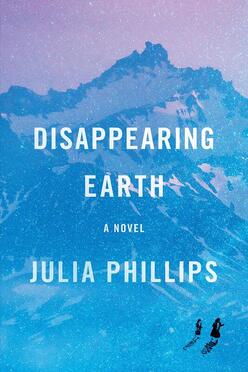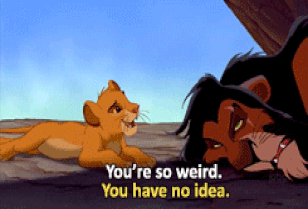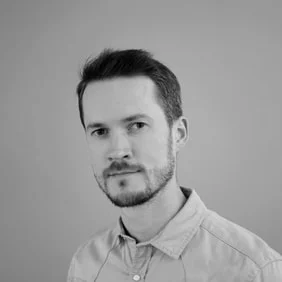Zach Powers: Owning the Weird & Mastering Patience
Zach Powers is no stranger to, well, the strange. He has a knack for creating outlandish, quirky characters and off-kilter worlds that somehow always feel familiar. His collection of short stories, Gravity Changes, won the BOA Short Fiction Prize in 2017, solidifying him as a storyteller with an imagination of epic proportions, as well as an author to watch. Now, he's gearing up for the release of his first novel First Cosmic Velocity (Putnam; August 6, 2019).
It's 1964 in the USSR, and unbeknownst even to Premier Khrushchev himself, the Soviet space program is a sham. Well, half a sham. While the program has successfully launched five capsules into space, the Chief Designer and his team have never successfully brought one back to earth. To disguise this, they've used twins. But in a nation built on secrets and propaganda, the biggest lie of all is about to unravel.
I’m so glad you agreed to do this. I’m beyond excited for this book. It sounds amazing!
I’m happy to do this! Thanks for reaching out.
So I like to kick off these interviews with some rapid-fire questions. Are you up for it?
Okay.
First order of business: sweet, salty, or both?
Both.
What’s your favorite combo?
Any sort of peanut-centric candy is on the list.
Peanut M&M’s are toward the top of the list?
Yes, but I have one complaint about peanut M&M's. They recently had this contest where one of the flavors was English Toffee and it was AMAZING. But it didn’t win. Maybe I shouldn’t be mad at M&M’s, but at America for not recognizing that English Toffee was by far the most superior version of peanut M&M that's ever been introduced. It was a brief, fleeting, wonderful moment in American history and now it's gone.
Noooooo! But okay, next order of business: You’re on your way to a desert island. You’re allowed to bring one gadget, one drink or snack, and one person. What and who are you bringing?
Okay, so the snack I’m bringing is definitely Nutter Butters--to stick with the sweet and salty combo. I should've just gone straight to Nutter Butters for that last question... The who is also easy. I’d bring my partner, Stephanie. Does she get to bring an item and snack?
Ha! You know, no one else has asked me that yet.
But the gadget… Gosh the gadget’s tough. Can we have a magical power charging source?
Sure, that can be this island’s special feature.
Then I’d bring an iPad. There wouldn’t be Wi-Fi, but I could have some books downloaded on there and some games. The iPad is kind of like a Swiss Army Knife. Either that or a Nintendo Switch. Basically I’m just looking for a source of entertainment.
What are you reading right now? Or what have you read recently?
Mostly Dead Things by Kristen Arnett. I got an advanced copy of that and interviewed her for The Writer’s Center's Magazine. She’s awesome, the book is awesome. Everyone should read it. And then I also just read Kayla Ray Whitaker’s book The Animators because we hosted her for an event and it’s so fantastic. It talks a lot about cartoons. Weird cartoons. Awesome cartoons. It was definitely in my wheelhouse.
What’s another book coming out later this summer or in the fall that you’re excited to read?
There are two other authors who’re coming out with books that are tied to Russia that I’d like to read. The novels are A Bend in the Stars and Disappearing Earth. Those two are up next on my reading list, but first I have to read a book by one of my friends. It’s a really early copy that I have to write a blurb for.
Speaking of Russia, your book is set in the USSR during the space race! Why the space race? Are there any parallels for what’s happening in the present day?
To be fair, I chose the subject matter for the book without any regard to the contemporary. The idea for the novel came about six or seven years ago and then I didn’t start working on it until about five years ago. The time frame is so long with novels. Between your time writing it, the time spent trying to find an agent, and pitching to editors. And then from the time it’s accepted for publication to the time it’s actually out into the world, there’s no way I could’ve predicted the current state of the world. I don’t know how people manage to write such contemporary works—it’s incredible.
There are some segments in the novel that deal with real periods of history. For instance, Stalin intentionally starved people in Ukraine. I had heard these stories and I didn't research them too heavily because I didn't want to get too deep into them. But I do have a flashback sequence that occurs in a Ukrainian village that's being forcibly starved. Most of it's made up. But anytime you're diving into thinking about the dehumanization that happens in authoritarian regimes and you're witnessing similarities in what shouldn’t be an authoritarian place, I think you find yourself suddenly way more relevant than maybe you had ever intended to be.
Definitely. I think you also make a good point about how long this whole process takes. How long did it take for you to get the book picked up? Did it happen all at once like avalanche or…
It was more like a snow drift.
Okay. Tell me about it.
It took about three/four years to get this thing published—not including the time it took me to write it. I had finished the project and then spent two years getting an agent. Then once I had an agent, she spent another year trying to find an editor who wanted to publish it. So it's a painstakingly slow process. I don't know if patience is a virtue, but it's definitely a requirement for publishing.
Agenting is very subjective process, that’s for sure.
Yes. My agent was—is—fantastic. She stuck with it even though there were a lot of no’s along the way. But then an editor read the whole thing in a weekend and got back to us almost immediately wanting to represent it. And that’s what you want. Agents and editors are no different than your readers. They want to find that book that pulls them into the wormhole and gets them addicted.
That’s a great way to look at it.
And then there's also the case where it’s the right person at the wrong time. So it can be kind of daunting and awful… Yeah, no one should ever be a writer.
Message received. Interview’s over.
Yup, that’s it.
Haha! But it’s all been worth it, I'm sure. Are you excited about the upcoming tour?
Completely worth it, and I'm definitely excited. I studied music in college so there's a performer in me somewhere that likes to get up in front of people. To me, when you’re writing, you’re creating something that's going to be performed in the head of your readers. So it goes hand in hand with that whole process. I'm also excited to go home. I'm from Savannah, so there's a couple of events down there. I'm also doing an event in Brooklyn at a bookstore I adore. It’ll be my first time reading in New York and I'm pretty stoked about it. It’s the literary capital of America, so I need to get up there and stake my claim.
Tell me more about this music career that never was.
I studied jazz at Loyola University in New Orleans. About halfway through though, I realized I probably wasn’t going to do music. After I graduated I played once in a while. Not so much since I've moved to the DC area. But when I lived in Savannah I had a lot of connections and I was playing like once a month. It was nice, but again not a career.
Where did you go from there?
I wound up working in TV for about nine years. I worked in television production at the local TV level. So first career music. Second career television. Third career writing and working in marketing and communications for nonprofits.
Has communications helped you through the PR part of the publishing process?
Oh yeah! I mean I've tried not to be too annoying to the PR and marketing people. I have an outstanding publicist, outstanding marketing person, and the whole team at Putnam is amazing. I respect them so much! But if I have an idea, I test the waters and see if it can help.
There are some authors who think marketing is a dirty thing and it can be. But I don't think you should feel dirty promoting yourself or your work. If you paint a painting and put it in a closet it has no meaning because meaning only happens in the space between the artwork and the viewer. Finding more viewers creates new spaces and opportunities for more meaning to be created. Marketing isn’t the ideal situation for everyone. And if it makes you queasy, don't do it. But if you're on the fence, don't feel gross about it. It’s not like you’re Marlboro trying to sell kids cigarettes.
I was chatting with Michelle Webber about a month ago about publicity and she said that’s there no publicist on the planet that’s going to say no to getting help from their authors.
Nope! Exactly!
Did working in television impact how you layout your scenes visually?
I definitely have a lot deep thoughts on how detail works in writing. I’m working on a series of craft essays right now and one of them is about how I've also worked in art museums. I'm not a trained visual artist. I'm not a painter. But I’m trained in visuals through television. I’m interested in how detail and fiction can be used differently than detail actually works when you look at something. Literature is a medium that allows you to undermine the natural visual hierarchy. And so I do consciously think about the way I arrange details, especially when describing setting. And that’s always been something very deliberate and learned through staring at things at art museums.
Also, when I was working in television, tape was still a thing. So I'd insert tape into a deck and I'd have to pull it. So before I even started pulling my brain had already cataloged all the different shots and I had decided pretty much where all of them were going to go. Your brain learns to pick up certain visual aspects and says, “Okay this one is going to complement this one, and then that one will work well with this one, and so on.” It’s helped me to very quickly see the layout of a scene that I’m writing.
What about music?
My work with music has really helped with my voice. There were times when I was doing music-related things three to eight hours a day. So living that every day for years and years ingrained so many things into me. Rhythm and tone and melody are things I really take for granted sometimes when I write. Like, people have whole conversations about musicality and writing, or about rhythm, and I get that without really having to think about it thanks to that music background.
Did writing your short story collection, Gravity Changes, help you write First Cosmic Velocity?
While you write short stories to exist unto themselves, you’re also practicing writing with them. You’re using them as learning tools. So I was literally learning as I wrote many of them and that helped when writing this novel. For example, going back and looking at that book [Gravity Changes], I think my mastery of language has improved since then.
Totally.
Writing is a practice. It's never something mastered. Even if you’re a “master” writer you can always become a better master writer. Like, I hope to look back at this novel in a year and see ways that it could be better and keep that process going because that means I’m reading new things and I’m thinking about writing in new ways.
I also wrote another novel manuscript before this one so I learned a lot through that as well.
Oh yeah?
Yeah! I love that project and I hope one day it sees print. I think it could be a cult sensation because it's so weird.
Is First Cosmic Velocity experimental like your short stories?
I'm a weird writer. There’s always going to be weird stuff. I love absurdity. I find the human condition absurd. But if I'm writing a "weird" thing, it's not to be weird. It's because everything is odd in its own way and stories are a way to highlight it. Although... I'd never considered myself a magical realist, but this novel probably approaches that more than the absurdity or the outright experimentation that was going on in the short stories though.
Having read your short stories and the excerpt on Putnam’s website I think there’s a consistent, underlying voice though. People will be able to tell it’s you.
Yeah, I think everyone has a baseline voice, which is the writerly voice they build in their heads. For this novel though I had to build off my baseline voice to make the novel work.
That makes total sense because the characters have to have distinct voices that are separate from your own. Speaking of characters, does the Chief Designer ever get a name?
Nope! I guess this goes back to the absurdness of the human condition and the level you're willing to go to keep a secret. The character is based on Sergei Korolev though. His involvement and identity in the Soviet space program wasn't revealed until after his death.
Oh, nice!
Yeah worth checking out.
Any other advice for writers regarding the publishing process? Going all the way back to patience being a requirement for publishing, any tips for that?
I don’t think one piece of advice works for everyone. But personally, I separate writing from the mechanical act of submitting and querying. Submitting and all that—I squeeze it between the cracks when I have time. I’ve submitted so many stories. I've queried so many agents. I had submitted my story collection to so many contests that I had—I have--become an expert on the process and very familiar with failure. I've done all this stuff much longer than most people would too, I think. I've had stories rejected 94 times before they were published. And I'm not saying it’s never bummed me out. I’m not a mechanical robot man.
This is something really important for writers to recognize. Everyone’s always so focused on the final product that they don’t always realize how long of a haul it can be.
Yeah! The thing is to just keep writing. Keep your writing time as sacred as you can. Whether it’s every day, once a week, once a month, just toss the business stuff into its own little silo and let it be its own thing. Don't let it affect the writing. I've seen a lot of my friends (who are writers) get crippled by the business and rejection. It always breaks my heart a bit to see someone have their writing affected by all that bs. So, yeah, through it all just keep writing.
About Zach Powers
Zach Powers is the author of the novel First Cosmic Velocity (Putnam, August 2019) and the story collection Gravity Changes (BOA Editions, 2017). His work has been featured by American Short Fiction, Tin House, and elsewhere. He is Director of Communications at The Writer’s Center in Bethesda, Maryland, and teaches writing at Northern Virginia Community College. Follow him on Twitter and Instagram.








